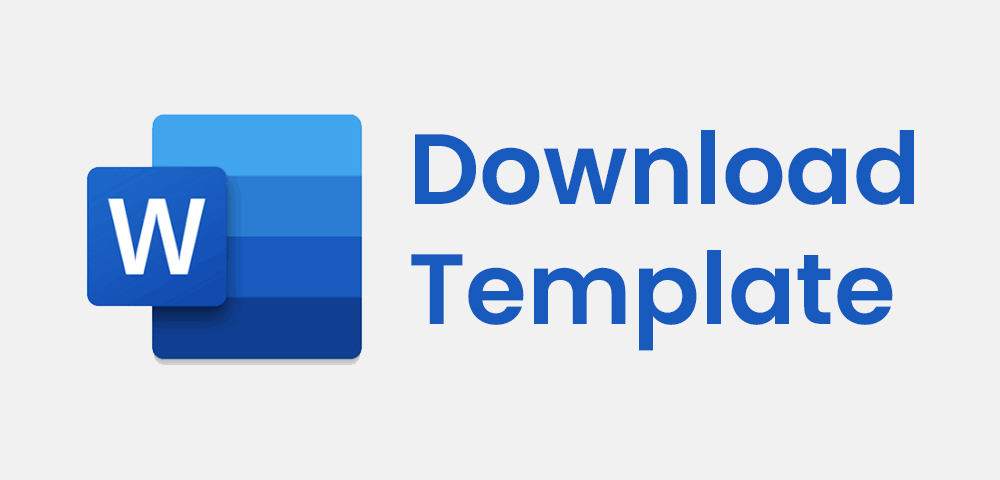- Focus and Scope
- Section Policies
- Peer Review Process
- Publication Frequency
- Open Access Policy
- Archiving
- Author Guidelines
- PUBLISHING ETHICS
- Author Fees
- Plagiarism
Focus and Scope
Language Education (Language Teaching and Learning Language Teaching and Learning Strategy; Language Learning Media; Language Teaching and Learning Technology; Language Learning Material Development; Language Teaching and Learning Evaluation; Modern Standards of Language Teaching and Learning; Language Curriculum Design and Development for Teaching and Learning; Language and Translation for Teaching and Learning);
Arabic Literature (Classical Literature, Modern Literature, Oral Literature, Written Literature, Children's Literature, Comparative Literature, Literary Criticism, Literary Psychology, and Sociology of Literature)
Section Policies
Articles
Peer Review Process
The entire article will be review at least two reviewers, and the results of the review will be published after approval from the board of editors.
Contribution to Editorial DecisionsPeer review assists the editor in making editorial decisions and through the editorial communications with the author may also assist the author in improving the paper.
PromptnessAny selected referee who feels unqualified to review the research reported in a manuscript or knows that its prompt review will be impossible should notify the editor and excuse himself from the review process.
ConfidentialityAny manuscripts received for review must be treated as confidential documents. They must not be shown to or discussed with others except as authorized by the editor.
Standards of ObjectivityReviews should be conducted objectively. Personal criticism of the author is inappropriate. Referees should express their views clearly with supporting arguments.
Acknowledgement of SourcesReviewers should identify relevant published work that has not been cited by the authors. Any statement that an observation, derivation, or argument had been previously reported should be accompanied by the relevant citation. A reviewer should also call to the editor's attention any substantial similarity or overlap between the manuscript under consideration and any other published paper of which they have personal knowledge.
Disclosure and Conflict of InterestPrivileged information or ideas obtained through peer review must be kept confidential and not used for personal advantage. Reviewers should not consider manuscripts in which they have conflicts of interest resulting from competitive, collaborative, or other relationships or connections with any of the authors, companies, or institutions connected to the papers.
Publication Frequency
Publish twice in year (biannually) on June and December.
Open Access Policy
Jurnal ini menyediakan akses terbuka langsung ke kontennya dengan prinsip bahwa membuat penelitian tersedia secara bebas untuk publik mendukung pertukaran pengetahuan global yang lebih besar.
Archiving
This journal utilizes the LOCKSS system to create a distributed archiving system among participating libraries and permits those libraries to create permanent archives of the journal for purposes of preservation and restoration. More...
Author Guidelines
General Organization of Paper (2021)
The paper will be published in Ihya al-Arabiyah Journal Of Arabic Language after the peer-reviewed process and decided as “Accepted” by Editor.
According to Engelmore and Morgan [1], manuscript content should, in general, be organized in the following order: Title; Authors Name; Authors Affiliation; Abstract; Keywords; Introduction; Methods; Results and Discussion; Conclusions; Acknowledgments; and References. Manuscript document submitted to this journal (in one MS Word) should be arranged as follow:
- Body text of manuscript article (from Title to References)
- Figure Captions and Table Captions
- Figures (one figure per page)
- Tables (one table per page)
Please include Covering Letter in a separated document file containing your summary of scientific finding and uploaded in Supplementary Files.
Body Text
The body of the text is a set of body text paragraphs defined as follows:
- 12pt Times New Roman, for Arabic 20pt Traditional Arabic
- One space, defined as 12pt
PUBLISHING ETHICS
ETIKA PENERBITAN
Jurnal Ihya 'al' Arabiyah adalah jurnal peer-review akademik, didirikan pada 2015 sebagai bagian dari UIN Sumatera Utara Medan. Ihya 'Jurnal yang mendukung untuk publikasi artikel ilmiah di berbagai cabang Studi Arab, di mana pengalihan ide sebagai temuan penelitian difasilitasi. Pernyataan kode etik ilmiah ini merupakan pernyataan kode etik semua pihak yang terlibat dalam proses publikasi jurnal ilmiah ini yaitu pengelola, editor, mitra bestari/reviewer, dan pengarang/penulis. Pada intinya Kode Etika Publikasi Ilmiah ini menjunjung tiga nilai etik dalam publikasi, yaitu
- Kenetralan, yakni bebas dari pertentangan kepentingan dalam pengelolaan publikasi;
- Keadilan, yakni memberikan hak kepengarangan kepada yang berhak sebagai pengarang/penulis; dan
- Kejujuran, yakni bebas dari duplikasi, fabrikasi, falsifikasi, dan plagiarisme (DF2P) dalam publikasi.
Tugas dan Tanggung Jawab Chief Editor :
- Menentukan nama jurnal, lingkup keilmuan, keberkalaan, dan akreditasi apabila diperlukan.
- Menentukan keanggotaan editor.
- Mendefinisikan hubungan antara penerbit, editor, mitra bestari, dan pihak lain.
- Menghargai hal-hal yang bersifat rahasia, baik untuk peneliti yang berkontribusi, pengarang/penulis, editor, maupun mitra bestari.
- Menerapkan norma dan ketentuan mengenai hak atas kekayaan intelektual, khususnya hak cipta.
- Melakukan telaah kebijakan jurnal dan menyampaikannya kepada pengarang/penulis, editor, mitra bestari, dan pembaca.
- Membuat panduan kode berperilaku bagi editor dan mitra bestari.
- Mempublikasikan jurnal secara teratur.
- Menjamin ketersediaan sumber dana untuk keberlanjutan penerbitan jurnal.
- Membangun jaringan kerja sama dan pemasaran.
- Melakukan peningkatan mutu jurnal.
- Mempersiapkan perizinan dan aspek legalitas lainnya.
Tugas dan Tanggung Jawab Editor
- Editor memberikan komentar terhadap tulisan penulis agar pembaca dapat mengerti apa yang ingin disampaikan penulis, melalui komentar yang dituliskan pada naskah dan atau fasilitas diskusi di website jurnal.
- Editor memberikan komentar terhadap tulisan penulis sesuai dengan bahasa EYD (Ejaan Yang Disempurnakan) ataupun bahasa yang sesuai dengan standarisasi dari jurnal.
- Editor mengupayakan peningkatan mutu publikasi secara berkelanjutan;
- Editor mengedepankan kebebasan berpendapat secara objektif,
- Editor menyampaikan koreksi, klarifikasi, penarikan, dan permintaan maaf apabila diperlukan,
- Editor memastikan bahwa tulisan penulis tidak menyangkut SARA atau apapun yang dapat merugikan Penerbit serta mengkoordinasikan tulisan penulis kepada pimpinan redaksi penerbit apabila tulisan tersebut sedikit kontroversial.
- Editor menerima, menelaah, dan menindaklanjuti keluhan dari seluruh pihak yang terlibat dalam penerbitan jurnal;
- Editor mendukung inisiatif untuk mendidik peneliti tentang etika publikasi,
- Editor tidak mempertahankan pendapat sendiri, pengarang atau pihak ketiga yang dapat mengakibatkan keputusan tidak objektif,
- Editor mendorong pengarang/penulis, supaya dapat melakukan perbaikan karya tulis hingga layak terbit.
- Editor melakukan layout naskah yang akan diterbitkan sehingga sesuai dengan template jurnal.
- Editor membantu pemimpin redaksi/chief editor dalam melakukan finalisasi terhadap kumpulan naskah sebelum dicetak dan dipubilkasikan, terutama dalam hal bahasa, format dan layout.
Tugas dan Tanggung Jawab Mitra Bestari
- Memberikan umpan balik tertulis yang obyektif dan tanpa bias mengenai nilai keilmiahan dan sumbangsih naskah terhadap pengembangan ilmu;
- Menunjukkan apakah penulisan naskah cukup jelas, lengkap, serta relevan, dan apakah naskah sesuai dengan lingkup jurnal;
- Tidak memberikan kritik atau komentar yang bersifat personal; dan
- Menjaga kerahasiaan naskah, dengan cara tidak membicarakannya dengan pihak yang tidak terkait, atau membeberkan informasi yang terdapat di dalam naskah kepada pihak lain.
Tugas dan Tanggung Jawab Administrator Website
Administrator Website adalah orang yang bertanggung jawab atas pengelolaan website jurnal. Secara spesifik, lingkup tugas Administrator Website adalah sebagai berikut:
- Menyiapkan situs web jurnal;
- Mengkonfigurasi opsi-opsi sistem dan mengelola akun user;
- Melakukan pendaftaran untuk editor, reviewer, dan penulis;
- Mengelola fitur-fitur jurnal;
- Melihat statistik laporan;
Author Fees
AUTHOR SUBMISSIONS
Registration and login are required to submit items online and to check the status of current submissions.
Plagiarism
Ihya al-Arabiyah: Jurnal Pendidikan Bahasa dan Sastra Arab, as a respected national journal, wants to ensure that all authors are careful and comply with international standards for academic integrity, particularly on the issue of plagiarism.
Plagiarism occurs when an author takes ideas, information, or words from another source without proper credit to the source. Even when it occurs unintentionally, plagiarism is still a serious academic violation, and unacceptable in international academic publications.
When the author learns specific information (a name, date, place, statistical number, or other detailed information) from a specific source, a citation is required. (This is only forgiven in cases of general knowledge, where the data is readily available in more than five sources or is common knowledge, e.g., the fact that Indonesia is the most populous Muslim country in the world.)
When the author takes an idea from another author, a citation is required—even if the author then develops the idea further. This might be an idea about how to interpret the data, either what methodology to use or what conclusion to draw. It might be an idea about broad developments in a field or general information. Regardless of the idea, authors should cite their sources. In cases where the author develops the idea further, it is still necessary to cite the original source of the idea, and then in a subsequent sentence the author can explain her or his more developed idea.
When the author takes words from another author, a citation and quotation marks are required. Whenever four or more consecutive words are identical to a source that the author has read, the author must use quotation marks to denote the use of another author’s original words; just a citation is no longer enough.










